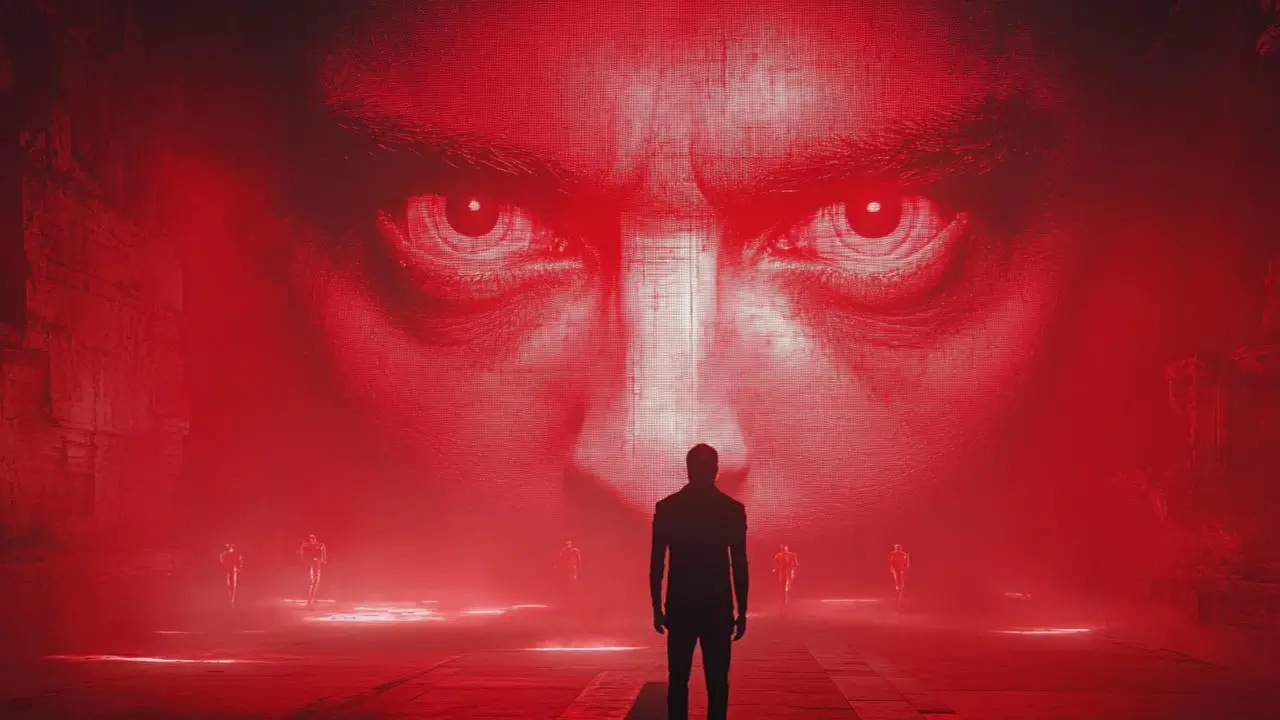
Orwell’s 1984 and AI: A Resemblance Too Close for Comfort
Books 19 secondhanddaylight August 24, 2024

1984 in 2024
Since I reflect on Orwell’s work every now and then, I recently became aware of some unsettling parallels between the dystopian world of “1984” and the new rise of AI and attention algorithms. Looking at many non-tech people around me, I was overwhelmed by the realization that the majority of the world has no idea what this new AI is capable of. Many scenes that seemed like extraordinary science fiction to the 13-year-old boy I once was can now be implemented in reality. With ease. In Orwell’s dystopian vision, the omnipresent telescreens served as the Party’s eyes and ears, constantly monitoring citizens’ every move and utterance. Today’s AI-powered surveillance systems bear an unsettling resemblance to this fictional technology. Advanced facial recognition algorithms can identify individuals in real-time from vast databases, while sophisticated data mining techniques sift through our digital footprints, piecing together intricate profiles of our lives, preferences, and behaviors. Unlike the clunky, visible telescreens of “1984”, modern surveillance is often invisible, embedded in the smartphones we carry, the smart home devices we install, and the public spaces we traverse. This ubiquity, coupled with AI’s ability to process and analyze massive amounts of data, creates a surveillance network potentially more pervasive and insidious than anything Orwell imagined.Thought Police is now
In 1950, Theodor Adorno and a team of researchers published “The Authoritarian Personality“, arguing that certain personality types can be defined by a number of traits believed to cluster together as a result of childhood experiences. They found that observing just one of these traits in an individual allows researchers (or governments, marketing agencies, etc.) to predict that individual’s personality with a significant degree of accuracy. As more traits are identified, this predictive accuracy increases. If Adorno and his team managed this in 1950 using only a few psychological tests, consider what today’s AI can accomplish with the data we’ve been feeding into the internet over the past 20 years. Our social network pictures, visited locations, posted comments, and online purchases all contribute to this vast data pool.
The Thought Police in “1984” punish even the mere idea of dissent. In today’s world, AI is very capable of using predictive policing, based on our entire online history, to forecast anything that interested parties (be it government or marketing agencies) desire. This capability is eerily reminiscent of policing thoughts or intentions, raising profound ethical questions about preemptively judging people based on AI predictions.
Post-truth world
In 1984, the past is constantly rewritten to fit the Party’s current narrative; writings are altered, images are retouched, and news articles are rewritten. Today, AI has a “black-magic-like” capability to create and alter images, texts, and even videos. AI can produce deepfake artifacts of human voices that can only be distinguished from reality by experts. The time when ordinary people cannot discern what is real from what is fake is upon us. The era of post-truth, where everything can be a lie or everything can be the truth, has begun.What road lies ahead?
The answer to that question ultimately depends on your view of human nature. If you believe that people are fundamentally good, then AI could become the ultimate tool for the prosperity and advancement of our species. But if you are mistaken, then in a few years, we may look back on 1984 and wonder why that world was considered dystopian.Table of Contents
ToggleFollow us
We do not have newsletters or any other kind of spam mail. The best way to stay in touch or contact us is to follow us on Twitter or Facebook.
Check this out

We will never show you ads, send spam emails, or sell your data to anyone. We don’t make money from this site – we’re here for the ideas. That’s why it is important to share content you like on this site on your favorite social network.
Copyright 2024 darkestdreaming.com. All rights reserved.




